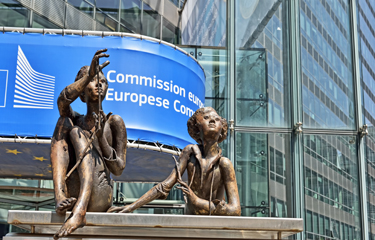Two mutually reinforcing strategies designed to create closer ties between European food producers, companies, and consumers, while establishing healthier and more competitively sustainable food systems, have been adopted by the European Commission.
In a press release announcing the adoption of the two strategies, the commission said that the COVID-19 crisis had “demonstrated how vulnerable the increasing biodiversity loss makes us and how crucial a well-functioning food system is for our society.”
It states that European farmers, fishers, and aquaculture producers play a key role in the transition to a more equitable and sustainable food system. As such, they will get support from the Common Agricultural Policy (CAP) and the Common Fisheries Policy (CFP) through new streams of funding and eco-schemes to take up sustainable practices.
“Making sustainability Europe’s trademark will open new business opportunities and diversify sources of income for European farmers and fishers,” the E.C. said.
The Farm to Fork and the Biodiversity strategies are both in line with the European Green Deal, which is the E.C.’s roadmap for making the E.U.’s economy more sustainable by tackling climate change and environmental degradation. The Green Deal was launched in December last year.
“At the heart of the Green Deal, the Biodiversity and Farm to Fork strategies point to a new and better balance of nature, food systems and biodiversity; to protect our people’s health and well-being, and at the same time increase the E.U.’s competitiveness and resilience,” European Green Deal Executive Vice President Frans Timmermans said.
Under the Farm to Fork initiative, new guidelines for the sustainable development of E.U. aquaculture will seek to increase the sector’s sustainability and competitiveness. They will also endeavor to move the sector toward a 50 percent reduction in antimicrobial use, as well as an increase in organic production. Additionally, the commission plans a separate strategy for the development of algae production and use in the E.U.
“It offers the opportunity to reconcile our food systems with our planet’s health, to ensure food security, and meet the aspirations of Europeans for healthy, equitable, and eco-friendly food," Timmermans said.
The Biodiversity Strategy, meanwhile, aims to strengthen the protection of marine ecosystems and to restore them to “good environmental status,” through the expansion of protected areas and the establishment of strictly protected areas for habitats and fish stock recovery. Funding of EUR 20 billion (USD 21.9 billion) will be unlocked for biodiversity through various sources, including E.U. funds, national and private funding.
E.U. Commissioner for the Environment, Oceans and Fisheries Virginijus Sinkevicius said the Biodiversity Strategy builds on what has worked in the past and adds new tools that will “set us on a path to true sustainability.”
“The E.U.’s aim is to protect and restore nature, to contribute to economic recovery from the current crisis, and to lead the way for an ambitious global framework to protect biodiversity around the planet,” he said.
Photo courtesy of Skyfish/Shutterstock







